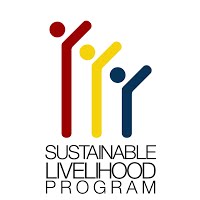Because sustainability is important for survival, the Department of Social Welfare and Development is bent on implementing li velihood projects in localities.
velihood projects in localities.
SLP is a community‐based program which provides capacity building, to improve the program participants’ socio‐economic status. This program supports microenterprises to become organizationally and economically viable. And links participants to employment opportunities.
Group of people in communities are trained to contribute to production and labor markets by utilizing available resources and accessible market. Through the Community-Driven Enterprise Development (CDED) approach, they are given the option to take either a Micro-Enterprise Development Track or an Employment Facilitation Track. Both programs also provide social preparedness, furthered skills training, and ultimately, sustainable sources of income.
According to Rebecca P. Geamala, Regional Director, DSWD6, underprivileged participants who are legitimately identified by the National Household Targeting System for Poverty Reduction (NHTS-PR) are always prioritized.
Geamala said, “This NHTS-PR identified participants particularly our Pantawid beneficiaries are provided with sufficient and sustainable source of income, and given equal opportunity to gain resources for their needs and skills,”
“SLP is designed as income-generating program. In which trained communities are intended to create products that consumers have a natural or constant demand for,” she added.
Institutions are likewise tapped to help make integrated training programs, enhance the skills of the communities, expand their opportunities, and teach participants to trust their own capabilities.
Furthermore, the major facets in all these efforts of DSWD SLP are seeding prosperity similarly making a sustainable contribution to the society. / Dswd6/MerryJezzelBrendia
